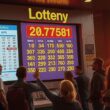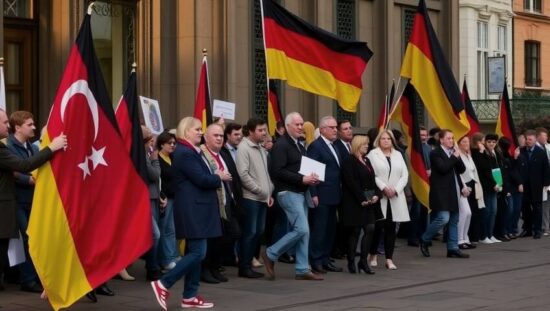The latest survey by Forsa shows a further decline in voter support for the Union. In the weekly opinion poll commissioned by RTL and ntv, the CDU and CSU lost a point and now stand at 31 percent.
The SPD has slightly improved and now has 17 percent (+1). The Greens also gained a point and now have 13 percent (+1). The AfD remains stable at 18 percent. The smaller parties, such as the FDP (4 percent), BSW (4 percent), and the Left (3 percent), are still below the 5 percent threshold.
In the direct chancellor question, Olaf Scholz (SPD) and Friedrich Merz (CDU) are tied at 27 percent, while 46 percent of respondents would not choose either of the two. In a three-way scenario with Robert Habeck from the Greens, the picture changes: Merz leads with 26 percent (-2), followed closely by Habeck with 25 percent (+1) and Scholz with 18 percent (+2). If Alice Weidel from the AfD is included, Merz remains in the lead with 25 percent, while Habeck has 20 percent, Scholz has 17 percent, and Weidel has 16 percent.
None of the top candidates from the SPD, Union, Greens, and FDP for the upcoming federal election will be considered trustworthy by a majority of the German public, according to the survey. Habeck is seen as trustworthy by 40 percent of respondents and not trustworthy by 56 percent. Merz is seen as trustworthy by 36 percent and not trustworthy by 60 percent. Scholz is seen as trustworthy by 33 percent and not trustworthy by 65 percent. Christian Lindner from the FDP fares the worst in this regard, with only 18 percent of respondents considering him trustworthy and 80 percent not considering him trustworthy.
The data on party and chancellor preferences were collected from December 3 to 9, and the data basis is 2,501 respondents. The data on the trustworthiness of the top candidates were collected from December 6 to 9, and the data basis is 1,008 respondents.





